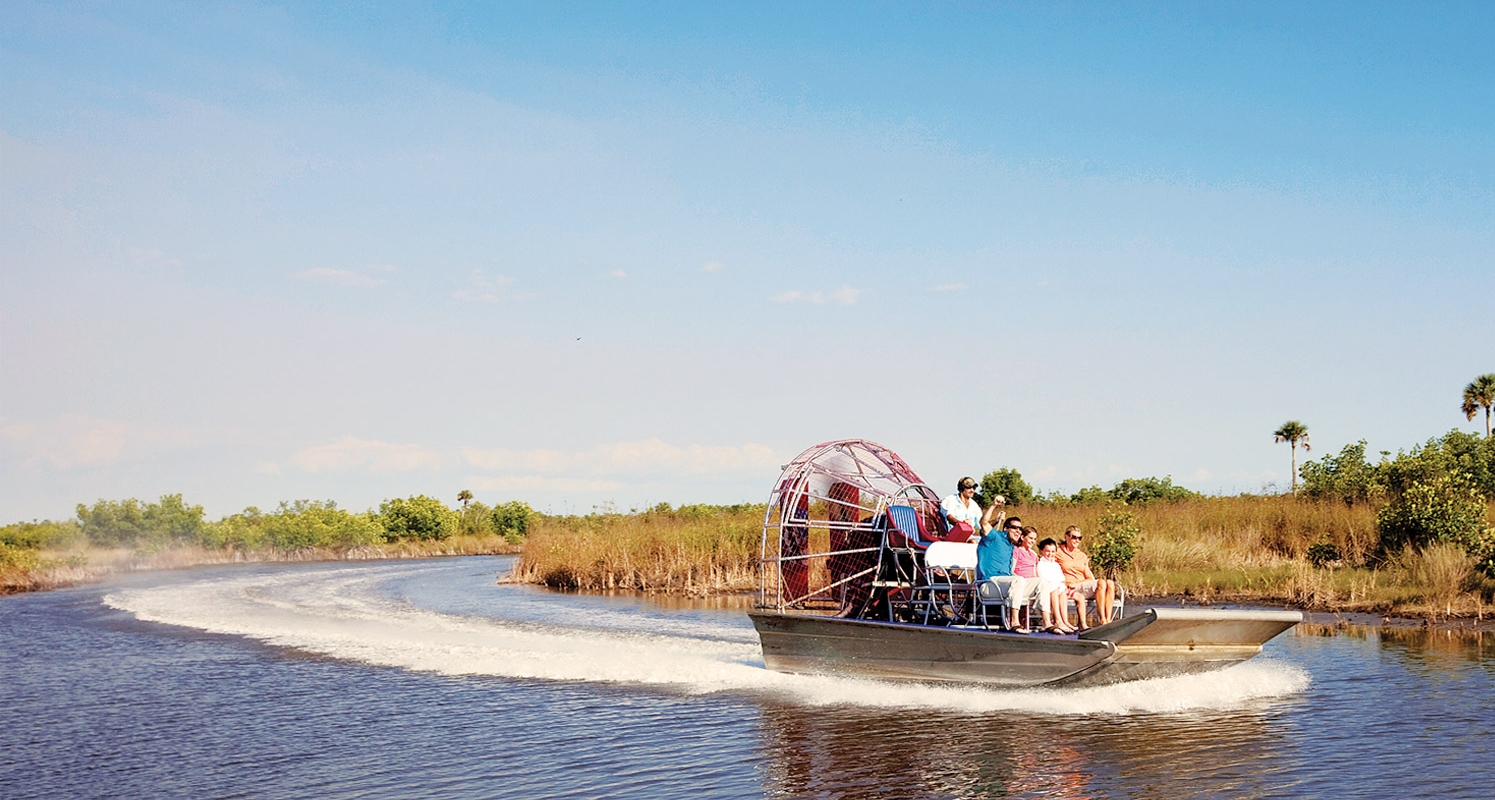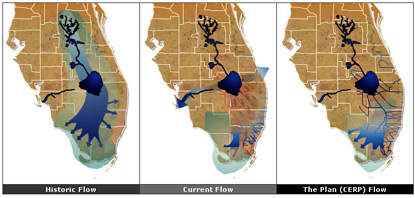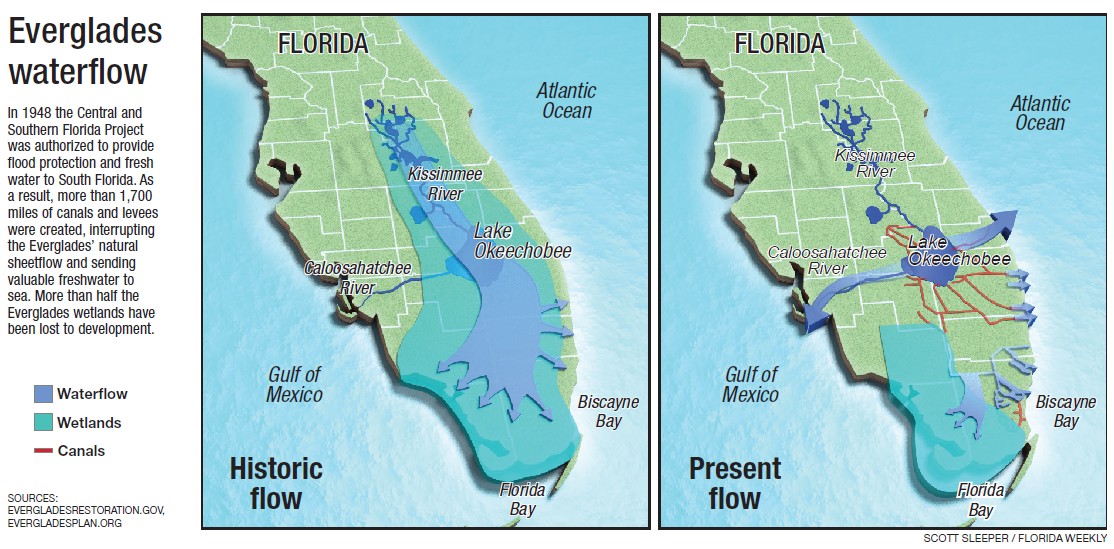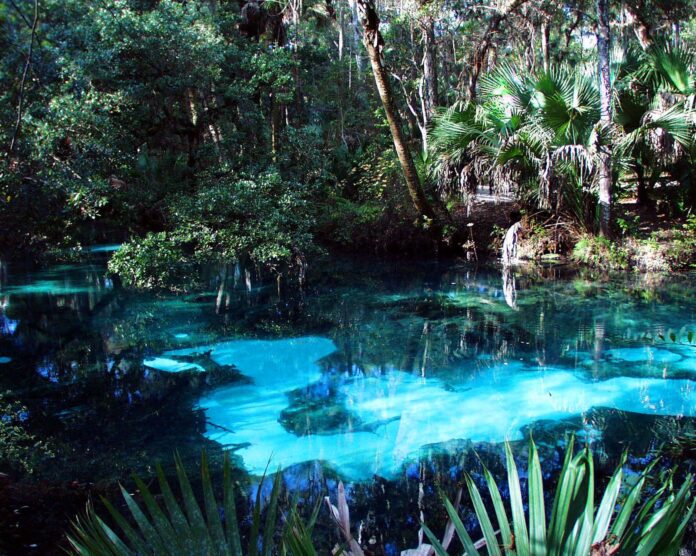In 2014, voters in Florida approved The Florida Water and Land Conservation Initiative, otherwise known as Amendment 1, which set aside money in the budget each year to invest in projects that protect the environment. Now that the money is in the budget to help preserve and restore Florida’s natural resources, it could be wasted on a new Everglades restoration scheme that is unneeded, underfunded and counter to the true intent of the new environmental law.
Amendment 1 was designed to dedicate 33 percent of net revenues from state excise taxes to fund the Land Acquisition Trust Fund.
The Land Acquisition Trust Fund was developed to acquire and improve conservation easements, wildlife management areas, wetlands, forests, fish and wildlife habitats, beaches and shores, recreational trails and parks, urban open space, rural landscapes, working farms and ranches, historical and geological sites, lands protecting water and drinking water resources and lands in the Everglades Agricultural Areas and the Everglades Protection Area. The fund was also designed to enhance public access and recreational use of conservation lands.

Some outspoken organizations that are intent on getting the state to acquire the Central Florida farmland suggest that Amendment 1 money was meant to be spent on purchasing land north of the Everglades–but that is just not true. Although Amendment 1 does allow for the acquisition of some land, it was never to be used to purchase the proposed 46,000 acres of Central Florida farmland, at an estimated cost of over $500 million. If the land is purchased, the state will be on the hook for maintenance and constructing the infrastructure for aquifers and retention ponds, which could cost over $2 billion in total, and thereby leaving the many other vital water projects in Florida without funding.
The Florida Water and Land Conservation Initiative, Amendment 1, requires the money to be used for many other purposes besides just acquiring land in the interior of the state. The law specifically states that the money should also be used for recreational trails, parks, beaches, historical sites and also farms – but the farmers don’t want to sell the land. They claim the land transaction would harm them financially, require them to fire workers and limit Florida’s future crops of produce.

Those who say Amendment 1, which Florida voters overwhelmingly approved, requires the state to exercise the option to buy the 46,000 acres south of Lake O and that politicians in Tallahassee are thwarting the will of the voters ignore the fact that NOWHERE in the language of Amendment 1 does it say “buy the US Sugar land or any specific land. The Amendment was designed to fund vital environmental projects state wide, not just in South Florida, and the The Florida Supreme Court ruled that the Florida Legislature would be responsible for deciding how the money from Amendment 1 should be spent.
The proponents say the land will cost $ 500 million but that is an estimate. The South Florida water management district pegs this cost as closer to $700 million. They also identified $2 billion in additional costs for what would be a reservoir of only 130,000 foot/acres in a 4.5 million foot/acre flow–a thimble of water in the greater scheme of Everglades restoration–for a huge cost. This is an incredibly expensive land grab that makes no hydrologic, environmental or economic sense and will only disrupt the restoration program and divert resources from projects and efforts that are working.
With phosphorous levels now cut by 55%, Everglades water is now testing cleaner than rain and meets federal water quality standards. We are in the final stages of Everglades restoration. We need to finish the job.

The farmers will be forced to sell if the legislature chooses to spend all of the Amendment 1 money on Southern Florida land rather than fund any of the other programs that are currently in need of financial support across the state, such as the 365 water quality projects the US Corps of Engineers has approved. Tallahassee politicians will thwart the will of their constituency if they blow their entire pool of money for Florida restoration, beatification and environmental protection all on one costly endeavor that the states own water management directors say will disrupt the already funded federal plan to restore and preserve the Everglades.
